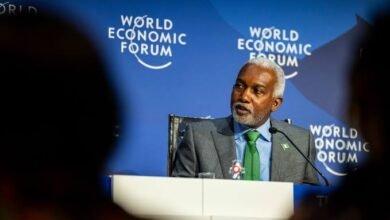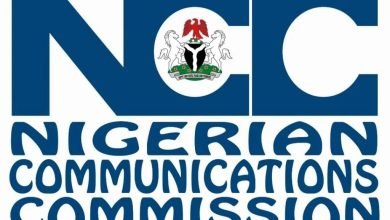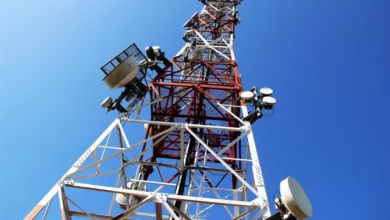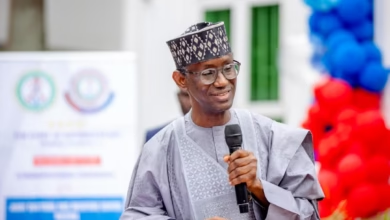OpinionTechnology
Dr. Maida: A Flicker of Hope for Quality Of Service
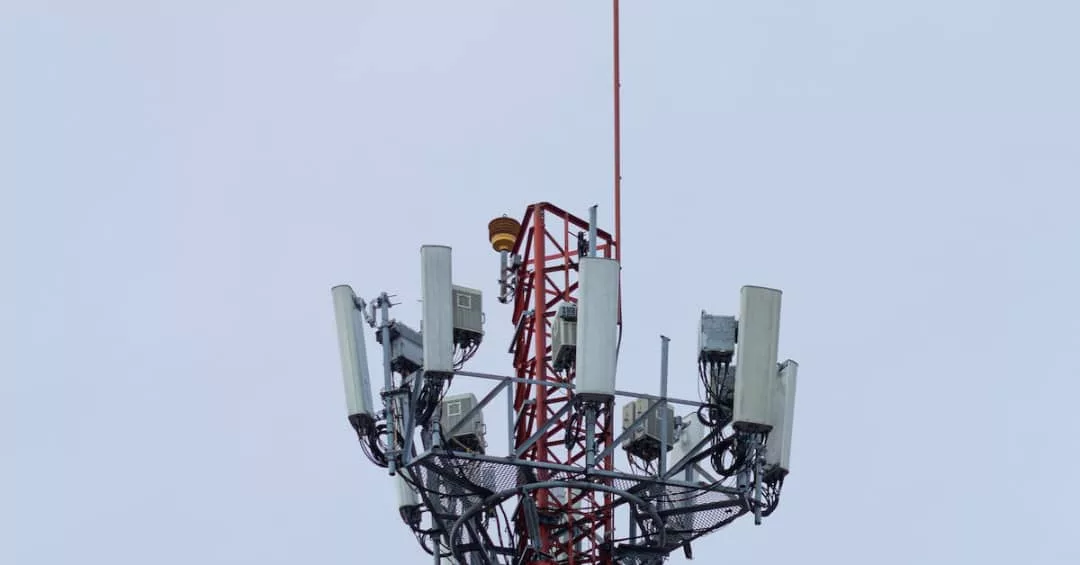
Most Nigerians have experienced—in one form or the other—the frustration that comes from poor service from network providers in Nigeria. There seems to be no longer the guarantee of a decent conversation over the phone that would not experience either a cut, a drop, or a buzzing sound at the background. At any point during a conversation, the line could be cut off, or the other party you have been speaking with would not have heard you for 30 seconds or more before your realised, due to poor network.
Then there are dropped calls. Imagine the embarrassment callers face when their calls get dropped, at no fault of theirs or fault of the party on the other side.
In fact, last week, I faced a touch of both the hilarious and vexatious as a result of a call-dropping experience with a senior colleague. Let me share a digest of what transpired: Oga Hakeem, who is also a businessman had been owed some money by a firm I worked for some time ago. He had not been paid due to some irregularities in the paperwork he had submitted then. So, it had been an oscillation of back-and-forth with his company on presenting the correct documentation before he could be paid. When I saw his missed call after a meeting, I knew I had to call him back to confirm whether he had been paid or not. In his rusty and dispassionate tone, Oga Hakeem said: “Mohammed, you people are not being fair to me. I have DHL’ed the new papers your people asked for. What more do you people want again? I did this last week and I am yet to be paid. Why? What did I do to deserve this? …”
I held my breath for a second or more, but before I could articulate a response, Oga Hakeem was no longer on the line. “How can he cut the call on me?” I said to myself. This was inappropriate. The situation did not warrant that. Yes, Oga Hakeem was rightly pissed that he had not been paid, but it was for reasons caused by his incompetent staff; did that give him a right to push the red button on me? In the heat of a jouska within my thoughts, and brewing indignation, I dialled Oga Hakeem again. He picked almost immediately. And with a tone louder than my usual I vociferated: “Hakeem! Bawo? Is this what it has gotten to? You wouldn’t even allow me explain, and you cut the call on me? Is it my fault that you did not submit signed invoices when you were applying for the payment?” My voice was getting louder by the second, but Oga Hakeem was dead silent.
I later got to know that he had intended to give me his own portion of anger, only that he had listened to my rant and understood that neither of us cut the call. It was our network provider who had sliced the call on us. He laughed. And responded, as if to pour cold water over burning charcoal: “Mohammed, I thought it was you who cut the call. I was ready to come to that your office and tear you and your people apart. Emi o ko mo pe network yin ni o ge.”
We both laughed, but with a sense of guilt. Guilt that we had both been angry for nothing. Our network providers wanted to clash our heads together. There is almost no Nigerian that has not tasted the poor quality of service that is dished by service providers on a daily basis. It is frustrating. Imagine those who are at the point where their benefactors are about to ask them to send an account number and the network provider performs a “cut”.
Yes, the telecommunications industry today has grown to great heights, incomparable with where it was a decade ago. From priced SIM cards to expensive call costs and limited spread. In fact, the average download speed in the year 2000 up to 2017 was 1400KBps. You can imagine how impossible it would have been to stream a movie then. It was even unthinkable. It is worth commending that today, we are past that. In many urban areas today, you can easily stream Netflix, watch a YouTube video, and TikTok from morning to night with just a few buffering here and there. Of course, in more places than less the network is ridiculously slow. Calls still drop on a daily basis. Network operators go on leave for days and come back without saying a word—like bad spouses. Yet, even as we express our anger over the status quo, we should not forget where we are coming from.
This is not to make a case for the bad behaviour of these service providers. But permit me to situate hope for better days within the context of appreciating where we are coming from—which is a world apart from where we are.
While a lot of the investments that have made growth in the telecommunications industry possible has been facilitated by the Nigerian Communications Commission (NCC), there is still more that the regulator needs to do. Yes, they have tried their best to ensure that we have gotten to a place that is good, but not the best. It is now time for the NCC to go above this barest minimum that it seems to be delivering, and prove its worth as the country’s telecommunication’s regulator.
If you ask the network operators to tell you why they cannot provide quality services they would string a long thread of excuses: from vandalism, to dollar scarcity, to high cost of maintaining their offices, to high cost of diesel, and so on and so forth. For anyone doing business in Nigeria, you would appreciate these pains felt by the network operators, because they bite every one equally.
In these circles of disappointments, there seems to be a flicker of hope. And that is the appointment of Dr. Aminu Maida as the Executive Vice Chairman of the NCC. The new helmsman comes with a strong background from the payment industry and an impressive history with the telecommunications industry in the United Kingdom. But his CV is just one part of this flicker of hope. The second, and I would say the one that charges me to present this treatise are the comments he made during his meeting with telecommunication CEOs at a meeting he held with them on resumption of office, as well as in a more recent meeting he had with Airtel Nigeria.
I was told that the meeting with telecommunication CEOs was his first meeting as Executive Vice Chairman. That by itself is symbolic and strategic. And he fired straight to the point: “So we need to come together as an industry and deliver value to the customers. Quality of Service for me is non-negotiable,” he said in a video posted to his social media account. This is a strong statement to the players within the industry that the new regulator will take quality of service seriously.
But even before this engagement, Dr. Maida had already taken to his Twitter (now called X, which I think is the most useless name to bestow on a mobile app that has nothing to do with the lascivious) to respond to a comedian called Randy Peters who had shared a video on social media where he complained about the cost of data as well as poor services from network operators. The new NCC boss posted on his account (@Dr_AminuMaida) saying:
“Mr Peter, we understand your frustrations on the issues surrounding the cost of data. Our work at the NCC is to ensure that consumers like you receive not just quality service but affordable internet service. We are looking into this and you can rest assured that Nigerians will pay only the fair price for data—and get improved quality service as well.”
This was the first time we would hear from Dr. Aminu on this issue of quality service from service providers. It was a strong statement from the country’s newly appointed regulator and it gave those of us onlookers a spark of hope that maybe this man would be the difference, and that probably he would be the one to deal this situation with the much-desired blow. Expressing this concern twice within a space of three weeks shows that he is not joking with the matter.
When Dr. Aminu brought up the Quality of Service as a non-negotiable matter, again during a visit from an Airtel delegation, my faith swole. For me, it meant that the NCC boss was not only hearing our vexes with these telecom providers but was unwavering about dealing with it. I wasn’t surprised: he is a Nigerian as well and I am sure he deals with the less than decent network service that our network operators provide as much as we do too.
If this Executive Vice Chairman of the NCC succeeds in getting these network providers to sit up and end dishing Nigerians poor quality services, he would make a mark and legacy that would be forever remembered.
But all these remain in the realm of talk. Dr. Aminu has the next five years and possibly more to prove that he is as vexed as we all are and convert talk to action. He is the one on the driver seat; as a matter of fact, he must do all that he can to rein this unruly horse towards the right direction, even if it means giving it a few whips. Nigerians need to see tangible improvement in the network service that telecommunications operators provide. The spark of hope we have seen so far must result in a burning flame.
Mohammed T. Abiodun is a historian and writes from Abuja.

